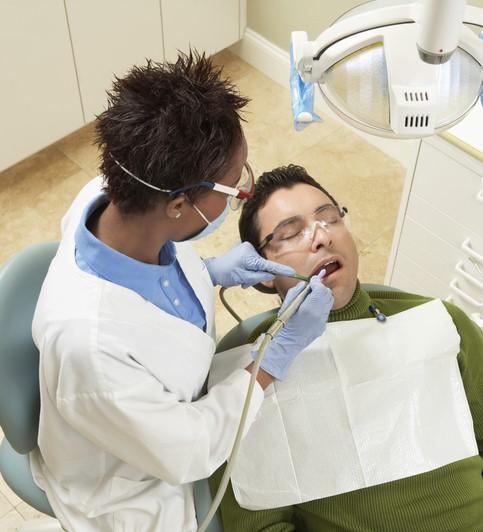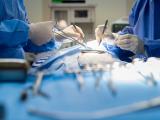New research presented yesterday at IDWeek 2019 indicates that nearly 4% of the patients given antibiotics unnecessarily before dental procedures experience serious adverse events, including allergic reactions and emergency room visits.
The findings are a follow-up to a study published in May that found that nearly 81% of antibiotics prescribed before dental procedures are unnecessary. For this study, the same team of researchers looked at the consequences of those unnecessary prescriptions and found that 3.8% are associated with serious adverse events. Among the 5,260 adverse events that occurred within 14 days, there were 3,912 were allergic reactions, 1,568 emergency room visits, and 9 cases of Clostridioides difficile infection.
The researchers also found that clindamycin—the second most frequently prescribed antibiotic by dentists, after amoxicillin—was associated with a 34% increased risk of an adverse event. Dentists are the top prescriber of clindamycin in the United States, and the earlier study had found that clindamycin was more likely to be unnecessarily prescribed before dental procedures than amoxicillin.
Katie Suda, PharmD, a co-author of the study and an associate professor at the University of Illinois at Chicago College of Pharmacy, said that the findings are noteworthy because dentists account for 10% of all antibiotic prescriptions in the country, and are the top specialty prescriber of antibiotics.
"Dentists are a very unique prescriber group," Suda said at an IDWeek press conference in Washington, DC. "Not only are they pressured to prescribe antibiotics from their patients, but also from other clinicians."
Only certain patients require antibiotics
The problem of unnecessary dental antibiotic use mainly involves certain patients for whom antibiotic prophylaxis (infection prevention) was once recommended. Under previous guidelines from the American Academy of Orthopaedic Surgeons (AAOS), one dose of antibiotics before dental procedures was recommended for certain patients with prosthetic joints, like a knee implants. But that recommendation was removed when the guidelines were updated in 2013.
Similarly, previous guidelines from the American Heart Association (AHA) recommended that patients with cardiac conditions who are at risk for adverse outcomes from infective endocarditis (an infection of the heart valve) should receive an antibiotic before invasive dental procedures, such as a tooth extraction. But the recommendation was narrowed in 2007. Under the current guidelines, antibiotics are recommended only for patients with cardiac conditions that are associated with the highest risk of adverse outcomes from infective endocarditis.
Suda and her colleagues theorize that providers who care for patients with conditions not requiring the drugs may still be recommending antibiotic prophylaxis before dental procedures. In their earlier study, they looked at data from a large national health claims database and found that, under the current AAOS, AHA, and American Dental Association guidelines, 80.9% of the antibiotics prescribed before 168,420 dental visits from 2011 through 2015 were unnecessary. Patients with prosthetic joint devices were the most likely to receive unnecessary antibiotics.
"It shows us there's a lot of opportunity for improvement," said presenting author Alan Gross, PharmD, a clinical assistant professor at the University of Illinois and a co-author on the previous study. "There are potential harms for patients who are receiving antibiotic prophylaxis."
Suda said while dentists need to be involved in the antibiotic stewardship conversation, part of the problem is that they often aren't aware that patients have experienced problems after taking antibiotics. "Very few dental offices have that kind of information," she said.
She also noted that the number of adverse events they estimated is very conservative, since it includes only events for which patients sought healthcare and doesn't include problems like nausea, diarrhea, or drug-drug interactions.
Gross said the findings from both studies should encourage patients to ask their dentists whether antibiotics are really needed.
"For patients visiting with their dentist…I think it's important to open the discussion and ask, 'do I still need to be taking antibiotic prophylaxis?'"
Suda added that clinicians can also play a role.
"Dentists are the experts on which patients do and do not need antibiotic prophylaxis," she said, referring to a need to not pressure them about prescribing. "So physicians and advance practice providers really need to support the dentists' decision on whether or not an antibiotic should be prescribed for that patient."
See also:
Oct 3 IDWeek 2019 press release
May 31 CIDRAP News story, "Study finds 81% of dental antibiotic prescribing not needed"























